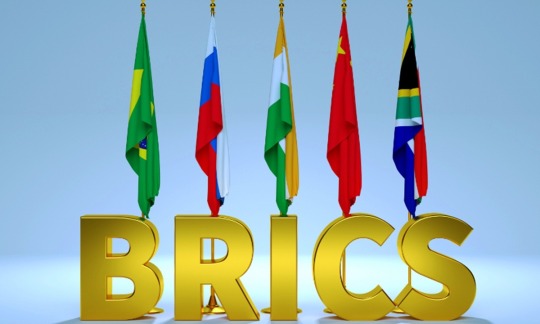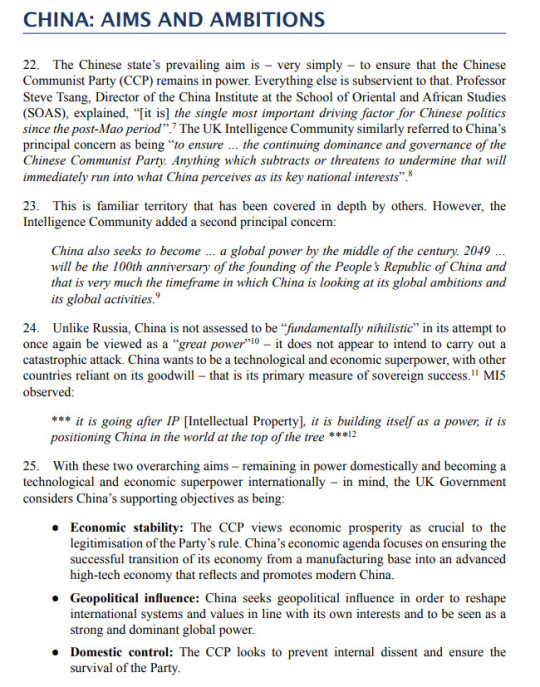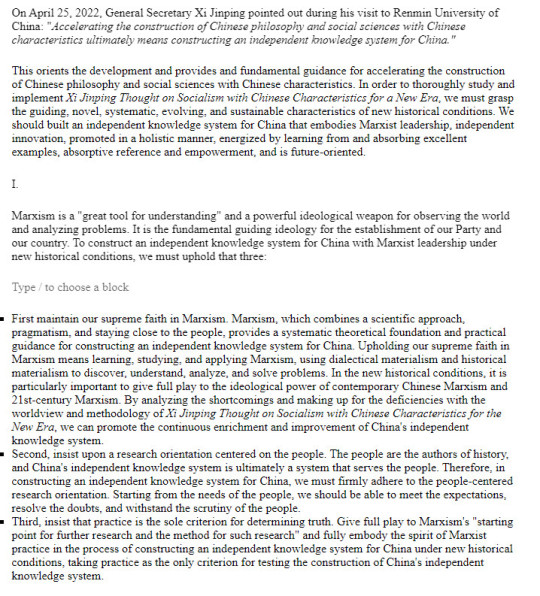#Decoupling
Text
One simple way to look at it is to take the rate of emissions reductions achieved in countries that have successfully decoupled, and see how long it would take for them to fully decarbonize. That’s essentially what Jefim Vogel and Jason Hickel — researchers at the University of Leeds and the Autonomous University of Barcelona, respectively — did in the Lancet Planetary Health study. They found that, if 11 high-income countries continued their achieved rates of emissions reduction, it would take them more than 220 years to cut emissions by 95 percent — far longer than the net-zero-by-2050 timeline called for by climate experts.
“The decoupling rates achieved in high-income countries are inadequate for meeting the climate and equity commitments of the Paris Agreement and cannot legitimately be considered green,” the authors wrote. In an interview with Grist, Vogel likened optimism around gradual decoupling to saying, “Don’t worry, we’re slowing down,” while the Titanic races toward an iceberg.
[...]
“Absolute decoupling is not sufficient to avoid consuming the remaining CO2 emission budget under the global warming limit of 1.5 degrees C or 2 degrees C and to avoid climate breakdown,” concluded the Intergovernmental Panel on Climate Change in its most recent assessment.
Instead of making growth greener, some economists call for a whole new economic paradigm to address converging social and ecological crises. They call it “post-growth,” referring to a reorientation away from GDP growth and toward other metrics, like human well-being and ecological sustainability. Essentially, they want to prioritize people and the planet and not care so much what the stock market is doing. This would more or less free countries from the decoupling dilemma, since it eliminates the growth imperative altogether.
Raworth, the professor at Amsterdam University of Applied Sciences, calls her version of the post-growth agenda “doughnut economics.” In this visual model, the inner ring of the doughnut represents the minimum amount of economic activity needed to satisfy basic needs like access to food, water, and shelter. The outer ring signifies the upper limits of natural resource use that the Earth can sustain. The goal, she argues, is for economies to exist between the inner and outer rings of the doughnut, maintaining adequate living standards without surpassing planetary limits.
“Our economies need to bring us into the doughnut,” Raworth told Grist. “Whether GDP grows needs to be a secondary concern.”
Vogel and Hickel go a little further. They call for a planned, deliberate reduction of carbon- or energy-intensive production and consumption in high-income countries, a concept known as “degrowth.” The rationale is that much of the energy and resources used in high-income countries goes toward carbon-intensive products that don’t contribute to human welfare, like industrial meat and dairy, fast fashion, weapons, and private jets. Tamping down this “less necessary” consumption could slash greenhouse gas emissions, while lower energy demand could make it more feasible to build and maintain enough energy infrastructure. Some research suggests that reducing energy demand could limit global warming to 1.5 degrees C without relying on unproven technologies to draw carbon out of the atmosphere.
75 notes
·
View notes
Text
[TW: Trichotillomania/BFRB discussion]
I randomly ended up reading about decoupling, decided to give it a try, and I haven't pulled or eaten my hair in two days. My mind is kind of reeling right now.
Decoupling is a technique for treating BFRBs where you redirect the motion that's usually associated with the behavior you're trying to stop. For example, if you bite your nails, when you're in the process of bring your finger up to your mouth, you would instead touch your earlobe or another part of your face.
For me, when I'm reaching to pull a hair, I instead press the palm of my hand to the back of my head. It's especially useful because it gives me the satisfying sensation of touching hair, which no kind of fidgeting can replace, but in a harmless way. It shuts down the impulse in a way that just stopping doesn't; I think it's because it feels like the gesture is "completed" in a way, not left unfinished.
The impulse is still there, I think especially because it doesn't address the hair-eating element of the behavior, but thusfar I've been able to shut it down effectively. We'll see how this goes.
#bfrb#body focused repetitive behavior#trichotillomania#trichophagia#decoupling#nothing else has worked for me so far#so might as well give this a shot
8 notes
·
View notes
Text
Chinese Senior Diplomat Calls To Resist Cold War Mentality At BRICS Security Meetings
— Global Times Staff Reporters | July 25, 2023

Photo: BRICS. VCG
Cyber security as well as other threats in traditional and non-traditional security fields have taken the spotlight at the ongoing meetings of BRICS countries in Johannesburg, South Africa, as analysts said that amid growing global uncertainties, more developing countries are seeking to improve solidarity to jointly tackle challenges to their development under the auspices of the BRICS mechanism.
While attending the 13th Meeting of BRICS National Security Advisers and High Representatives on National Security in Johannesburg, South Africa on Tuesday, senior Chinese diplomat Wang Yi said that after more than 10 years of development, the BRICS has become an important platform for emerging market countries and developing countries to unite and self-development.
Under the new situation, we must grasp the future development direction of the BRICS countries, further strengthen political mutual trust and strategic coordination, continue to provide international public goods that meet the requirements of the times, and strive to translate the BRICS spirit of openness, inclusiveness, and win-win cooperation into practical actions, and polish the "golden brand" of BRICS cooperation, Wang said.
To deal with the current global security challenges and solve the security dilemma, Wang also called for countries to resist unilateralism, hegemony and oppose "decoupling" and "double standards" and oppose Cold War mentality and zero-sum game.
Analysts said that the ongoing meetings for security advisors and senior diplomats from BRICS countries and "Friends of BRICS" underscored the security concerns of developing countries and new emerging economies over the destructive activities, "color revolutions" and cyber attacks plotted by some countries who have posed great threats to the stable development of developing countries and global peace.
Aside from expressing their concerns over traditional and non-traditional security fields, BRICS countries and developing countries are seeking to improve solidarity to jointly tackle development challenges under the BRICS mechanism, which will also be part of the build-up to the 15th BRICS Summit in South Africa to be held from August 22 to 24, they noted.

On Monday, a meeting, which was held under the theme of "Cyber security is increasingly becoming a challenge for developing countries," is also being attended by Minister in the Presidency of South Africa Khumbudzo Ntshavheni, Chief Adviser of the Presidency of Brazil Celso Luiz Nunes Amorim, Secretary of the Security Council of the Russian Federation Nikolai Patrushev, National Security Adviser Ajit Doval of India and representatives of Belarus, Iran, Saudi Arabia, Egypt, Burundi, the United Arab Emirates, Kazakhstan, Cuba and other countries.
Security Concerns Under Spotlight
During the Tuesday meeting, Wang, member of the Political Bureau of the Communist Party of China (CPC) Central Committee and also director of the Office of the CPC Central Commission for Foreign Affairs, said that the "Global South" is a collection of emerging market countries and developing countries, reflecting our collective rise on the international stage. Countries in the "Global South" face the important mission of resisting the external intervention and maintaining political security and regime security.
Wang Yi said that unity is strength, action is direction, and openness is motivation. China is willing to work with BRICS partners to support each other's efforts to maintain national security and stability, and to carry out more practical cooperation in dealing with international security challenges, so that the world can hear more BRICS voices and witness a greater role of the BRICS.
Senior officials on security from BRICS countries also exchanged in-depth views on issues such as current security challenges, anti-terrorism and cyber security, food and water security, and energy security, and reached broad consensus, according to a release from Chinese Foreign Ministry.
The issue of cyber security has been discussed at length at the ongoing BRICS meeting as some Western countries have intensified using the internet to conduct destructive activities in other countries, including inciting domestic riots, fooling the public or organizing cyber attacks on governmental departments, which have posed threats to developing countries' stability and development, Song Zhongping, a Chinese military expert and TV commentator, told the Global Times on Tuesday.
The meeting on security, together with other meetings in various fields, will lay the groundwork for the leaders' summit in August, as the BRICS mechanism is a cooperative mechanism beyond economic and security fields, and whether it is regarding traditional or non-traditional fields, it would safeguard development and cooperation in other areas, Song said.
This year's BRICS summit will focus on improving cooperation between BRICS members and African countries in technology, economy and other fields, and security would also be the basis for cooperation, said Song.
South Africa has invited the heads of state of all African countries to the summit, which is themed as "BRICS and Africa: Partnership for Mutually Accelerated Growth, Sustainable Development, and Inclusive Multilateralism." The summit is anticipated to discuss how BRICS countries can better work with African countries, media reported.
Security is the core concern for the financial cooperation of BRICS countries and other developing countries. This is also why BRICS countries are studying the potential use of alternative currencies to the US dollar, analysts said.

For the past months, many media, especially those from the West and the US, have reported that BRICS countries are seeking to shift from the dollar in mutual trade to avoid becoming "victim" to sanctions. For example, in April, Bloomberg reported that Brazilian President Luiz Inacio Lula da Silva called on BRICS countries to come up with an alternative to the dollar in foreign trade.
South Africa, the BRICS chair, has put the stability of the global financial system as a priority for the BRICS meetings, as BRICS countries and developing countries have been put in an unfavorable position that would be affected by global financial hegemony, Wang Lei, director of the Center for BRICS Cooperation Studies at Beijing Normal University, told the Global Times.
However, de-dollarization is not the core mission of BRICS countries and what they want is to make the global financial system fairer and more inclusive, and to better reflect the major changes that have happened in the global governing system, Wang Lei said.
Against the backdrop of the continuous Russia-Ukraine conflict and drastic global changes unseen in a century, developing countries are seeking to inject more stable and secure impetus to the world and to promote the international governing system to be more inclusive and better reflect their interests. However, the US and some Western media have smeared their efforts, analysts said.
What BRICS countries are working toward is not to compete with the US for its hegemony, but to build a multipolar world in which each country's concerns on security, economy and developments can be respected by others - this may also be the reason for the US and West's increasing worries of the growing influence and attractiveness of BRICS, Song said.
#BRICS#South Africa 🇿🇦#Cold War Mentality#Decoupling#Double Standards#Cyber Security#Global South#China 🇨🇳#Mutually Accelerated Growth#Sustainable Development#Multilateralism#Bloomberg#Brazil 🇧🇷#President Luiz Inacio Lula da Silva#Global Times#Alternative Currencies#US Dollar 🇺🇸
6 notes
·
View notes
Video
youtube
China's Nightmare Is Coming! Foreign Business Flee, 23 Trillion Fiscal Deficit & Birth Rate Collapse
China Observer
Foreign capital is accelerating its withdrawal, a large number of small and medium-sized enterprises are closing down, the unemployment rate of young people is high, the real estate bubble has burst, and the local government's finances are on the brink of collapse... This series of problems, like a nightmare, envelops the land of China. Although there are factors of global economic downturn, the main reason for all of this is the Chinese Communist Party's three-year strict execution of its zero-COVID policy, which has caused serious damage to the economy and all aspects of society. Now, the CCP is not reflecting on the lessons learned, but instead, busy rewriting history, avoiding mention of its zero-COVID policy, and even claiming that this disastrous policy has achieved significant success. In the face of social, economical, and political crises, they turn a blind eye and still paint a rosy picture of the situation. Recently, Chinese financial blogger Laoman summarized the cost of the CCP's three-year zero-COVID policy and answered the question of why the CCP suddenly abandoned it without any transition period in December 2022, after unwaveringly insistence for three years. His summary is very meaningful, and we can draw on its content, as well as our findings in this presentation. We also encourage everyone to participate in the discussion in the comments. The first cost of the three-year zero-COVID policy is that the government's fiscal deficit has sharply increased, with the fiscal burden increasing by 60%.
P.S. Communist dictatorship is not fun...! Reality is completely different from communist and socialist propaganda: In real life dictatorships provide mass political repressions, war, censorship, poverty and boringly miserable life conditions for masses of people...
4 notes
·
View notes
Text
youtube
CW for depressing climate stuff at the start, I guess. The book makes up for it, though.
Jason Hickel's "Less Is More: How Degrowth Will Save The World" is excellent. Read it.
Link to the eco-economics book: https://www.researchgate.net/publicat...
---------- Music in order of appearance ---------
???????????*
Without - Unfound
???????????*
Boss music from Legend of Zelda: Ocarina of time
???????????*
My own jingles
*Question marks because the person behind the playlist I got the music from ( • Vaporwave Chill Non-CopyRight Music! ... ) didn't have the courtesy to credit the artists
#degrowth
#Eyeball Zone#Glocal Weirdo#degrowth#doomscrolling#Covid#eco anxiety#Jason Hickel#Less is More#GDP#Resources#Decoupling#climate crisis#recession#planned obsolescence#right to repair#advertising#fallacies#GPI#equality#rent#mass movement#You're not the only one#ecological crisis
1 note
·
View note
Text
2023 Red Flag: China's Self-Reliant Opening to the World
Over the past decade, considerations of security in foreign trade and international have gotten increased attention for a number of reasons. A major preoccupation in recent years, global terrorism, is getting less attention.
Frictions with Secretary Xi’s China anxious to repress domestic ideological threats and what it perceives to be disrespect for its global ambitions from lesser…

View On WordPress
#Book of Changes#counterintelligencce#decoupling#development#economy#influence#innovation#international relations#market#media#MI5#opening#politics#PRC#Security#self-reliance#Trade#trade barriers#Xi Jinping#中国
0 notes
Text
Europa e USA incrementano gli investimenti in fondi Esg
Europa all’avanguardia sui fondi Esg. Paradossi e anomalie. Il Vecchio continente si sta dimostrando ancora più determinato di Washington nell’interrompere ogni relazione economico-strategica con la Federazione Russa.
Da diverso tempo nella comunità degli investitori globali si assiste a un decoupling, in merito alle tematiche ambientali, sociali e di governance (Esg), tra il sottoinsieme degli asset owners e managers americani e quelli europei. Il primo raggruppamento vede sempre più acuirsi le tensioni al proprio interno, in particolare sotto la spinta dei fondi pensione degli Stati del Midwest e del Sud del Paese, tra i fautori di un abbandono di tali tematiche come criteri guida delle scelte di investimento e i sostenitori, sul fronte opposto, di un approccio ancora più radicale in senso contrario.
Al di qua dell’Atlantico, invece, le direttive che vengono impartite ai percettori dei flussi di investimento, in modo uniforme rispetto a tutti i settori industriali e agli investment stages, sono omogenee nell’indicare l’Esg come un elemento indefettibile della strategia oramai lungo qualsiasi orizzonte temporale.

Se ne trova conferma in una recentissima ricerca di Morningstar, citata dal Financial Times, che evidenzia come negli ultimi dodici mesi i fondi recanti l’etichetta “sostenibile” abbiano subito flussi in uscita netti per $ 12,4 miliardi negli Stati Uniti e flussi in entrata per $ 126 miliardi in Europa, facendo quindi del Vecchio continente l’avanguardia del movimento Esg a livello planetario. A ciò fa riscontro una politica da parte dei grandi asset managers americani, BlackRock in particolare, che lascia maggiore libertà di scelta ai propri clienti rispetto alle attività di monitoraggio e di engagement nei confronti delle società in cui investono.
Il fenomeno, a ben guardare, presenta diverse anomalie, non foss’altro perché nella classifica degli asset managers globali, ben otto su dieci (fonte: Statista, marzo 2022) provengono dalla sponda ovest dell’Atlantico, mentre gli unici due europei (Ubs e Allianz) occupano rispettivamente il terzo e l’ottavo posto della classifica. A rigore, quindi, avendo i primi un’estesa operatività anche in Europa, ci si dovrebbe attendere che le lacerazioni di cui sono vittima si riproducano anche nella sponda est.
Al contrario, asset owners, asset managers e autorità pubbliche europee stanno agendo in sincrono per accelerare il processo di decarbonizzazione e renderlo definitivo nel più breve tempo possibile, come dimostrato anche dal complesso di provvedimenti comunitari volti ad azzerare i combustibili fossili come fonti di energia per i settori del trasporto e del riscaldamento.
I risvolti della vicenda sul piano geopolitico sono notevoli. Proprio mentre sembrano prendere nuovo vigore sul piano politico le istanze isolazionistiche che l’ex presidente Donald Trump sette anni fa seppe meglio di tutti impersonificare e portare alla Casa Bianca, l’Europa adotta politiche e scelte di investimento radicali sul piano energetico avvicinando di molto il momento in cui pressoché ogni legame economico-strategico che la vincola alla Russia monoprodotto verrà reciso. Anzi, considerando che i processi industriali complessi necessitano di diversi anni di riprogrammazione prima dei momenti di switch-off, si può ragionevolmente affermare che il net zero è già tra di noi o quanto meno che la direzione di marcia non può più essere invertita.
Il paradosso si arricchisce ulteriormente – come si evince anche dalle recenti esternazioni del governatore della Florida Ron DeSantis – del fatto che i sostenitori del movimento Maga e dell’America introvertita sembrano non essere così risoluti, differenziandosi così dalle istanze neo-con o liberal interventionist, nel garantire a Kiev anche solo il livello attuale di supporto allo sforzo bellico contro Mosca.
In altre parole, mentre matura la convinzione che negli Stati Uniti, sia a livello di opinione pubblica che di apparati, si affievolisca l’interesse per le vicende europee e per il perseguimento dei propri obiettivi strategici nell’area, il Vecchio continente non assume posizione terze, come in altre parti del mondo, tra la superpotenza e quelle che la sfidano ma semmai si dimostra ancora più determinato di Washington nell’interrompere ogni relazione economico-strategica con la Federazione Russa.
In questo quadro, sono destinati ad assumere molta più importanza, anche e soprattutto sul piano strategico, i processi di nomina delle leadership in campo economico-finanziario rispetto a quelle in campo politico così come il sentiment di piccoli e grandi investitori andrà misurato con la stessa regolarità di quello delle opinioni pubbliche continentali e dei rispettivi organi politici rappresentativi. Sempre che anche da noi qualcuno non cominci a sventolare la bandiera anti-woke.
Read the full article
0 notes
Text
Fascinated by the way Succession depicts the decoupling of work and money that happens at a certain level of wealth. No one in the Roy family is working because they need the money, and yet the expectation is that they will work, because working is what Functional Productive Adults do, and that’s what Logan has always done (although he was, at one point, working for money). And so you have Kendall who works for his father’s approval, Shiv who works for her own moral justification, Connor who works on passion projects, and Roman who works…. Well, because Logan expects him too, but without much hope of the approval Kendall strives for, without any passion for the job itself, and without any real material reward or personal moral justification. (Is it any wonder Roman puts so little effort into his job?)
And then you have the executives for whom money has lost material benefit and simply represents status, like a ranking on a scoreboard; and you have Tom who likely is making far more than Shiv in terms of raw income, and yet, like Shiv, his income is somewhat meaningless because they can live purely off her passive generational wealth, and his proximity to her family means his status is not dependent on his career ambitions or material success. As long as they’re married he’s going to be a Roy and he’s going to be obscenely wealthy, regardless of how well or poorly he does his job. There’s almost no point to career advancement unless he becomes CEO, because that’s the only thing that’ll elevate his status beyond what it is right now.
And then, finally, you have the Pierces, who have lived off wealth for generations. Is anyone in that family really working, in the traditional sense? It doesn’t seem like it. The older ones study and read books and get multiple PhDs and form staunch opinions about a world they pretend they are an equal part of, with their funny little house and their low-thread-count sheets, refusing to really acknowledge the particular power their wealth gives them. The younger ones party and do charity work and have circular conversations about pretentious books. There’s no pretence of work, but there is the pretence that they’re somehow making the world a better place without having to leave the bubble they’ve lived in to actually interact with that world. After all, if you can’t pretend you’ve earned your wealth you have to pretend you’re doing something good with it, otherwise what are you but a parasite?
#succession#these thoughts brought to you by white lotus actually. that whole ‘why would you want a job??’ conversation#you can argue that this is the other end of the spectrum of people who don’t make a living wage. their work is somewhat decoupled#from money albeit in a different way
652 notes
·
View notes
Text
what I mean when I say I'm tired of people making found families into nuclear families:
among other things, it's kind of annoying when people act like the romantic couple are automatically the "most obvious" candidates to adopt a kid; or act like a pair of people in a romantic relationship can't happily co-parent a kid with people outside of that romance
what I don't mean when I say I'm tired of people making found families into nuclear families:
people using "siblings" or "parent and child" as a shorthand (or even non-shorthand) for characters' relationships sometimes
#like yeah i've personally encountered instances of “these characters are siblings” that i feel are slight oversimplifications#but there's also not a great concise alternative word#and sometimes? characters CAN just be adopted siblings!#and also if i can be completely honest#sometimes i want a way to gently clarify that i'm interpreting the relationship of two characters in a non-shippy way#without having to put a big aggro “don't tag as ship!!!” disclaimer up#i actually we believe we need to decouple “i'd like to avoid mentions of this ship” from the implication of moral judgment#(or even like “i am judging you but only for your subjective taste and you don't deserve harassment”)#but in the meantime some people probably *will* interpret “don't tag as ship” as moral judgment#so i need a concise little way to bring up organically that i'm not into a ship!
35 notes
·
View notes
Text
The 2024 Global Resource Outlook, developed by the International Resource Panel with authors from around the globe and launched during the sixth session of the UN Environment Assembly, calls for sweeping policy changes to bring humanity to live within its means and reduce this projected growth in resource use by one third while growing the economy, improving well-being, and minimizing environmental impacts.
The report finds that growth in resource use since 1970 from 30 to 106 billion tons—or from 23 to 39 kilograms of materials used on average per person per day—has dramatic environmental impacts. Overall, resource extraction and processing account for over 60% of planet-warming emissions and for 40% of health-related impacts of air pollution.
The extraction and processing of biomass (e.g., agricultural crops and forestry) accounts for 90% of land-related biodiversity loss and water stress, as well as one-third of greenhouse gas emissions. Similarly, extraction and processing of fossil fuels, metals and non-metallic minerals (e.g., sand, gravel, clay) together account for 35% of global emissions.
[...]
At the heart of global resource use are fundamental inequalities: low-income countries consume six times less materials and generate 10 times less climate impacts than those living in high-income countries. Upper-middle-income countries have more than doubled resource use in the past 50 years due to their own growth in infrastructure and the relocation of resource-intensive processes from high-income countries.
At the same time, per capita resource use and related environmental impacts in low-income countries has remained relatively low and almost unchanged since 1995.
95 notes
·
View notes
Text
Also on that train of thought
The fics that have Feyd Rautha simp for Paul not because of a competency kink (which is arguably canon to the film - isn't that the reason why y'all say he looks turned on in the film?) but because of a misplaced adherence to the Bene Gesserit prophecy/plans (that Paul was meant to be Feyd's match in marital affairs) is not as inspired as you might think it is. It's not brave to say oh this boy was promised a gf and now he's pussywhipped for the boy he got in her stead. You've just reinvented a trans chaser with extra steps.
Also, the idea that Feyd Rautha would put that much faith in a prophecy feels reductive for a character that is already not a major-major player in the plot. I still need to read the book to get a better gauge on his character, but I've heard that he appears for a grand total of 4 scenes, which is kind of more or less the extent of his appearance in the films too. I would hope expanding on his characterisation meant giving him more agency (or at least a drive towards emancipation and agency) and more ambition amidst all the plans that have been made for him long before he was born. If he's truly as power hungry as Part Two seems to suggest - he has the will to assassinate his uncle Baron Harkonnen until he was appeased by the appointment of stewardship on Arrakis and the prospect of marrying Irulan for the throne - then what makes you think he would settle for doing as the Bene Gesserit expects of him? If he pursues Paul as a partner it would be through his own means and for reasons that defy the BG's chokehold on the imperium.
#trans paul atreides#feydpaul#Paul is repeatedly shown to be weighed down by the visions and expectations of the Kwisatz Haderach#it's not romantic to surrender to the paths laid out by one's prescient abilities - that robs one of free will#that sort of existence is a prison in the context of the book#and so... the narrative of FeydPaul as intended soulmates is actually more limiting than it is liberating...#it would be more compelling to see them defy that prophecy#to decouple their relationship from the implications of the Bene Gesserit programme and still find meaning in their union#duneposting
28 notes
·
View notes
Text

mini me banner I made originally with the intention of using it for my ko-fi account, but I realized I don’t have the energy to keep something like that meaningfully updated, so now it’s just a general banner for my socials if I feel like it
#I do have a ko-fi I just don’t advertise it really because currently I’m not in need of extra financial help because job#like on one hand it would be great to make money off of making things I enjoy but on the other hand#I would feel beholden to the whims of supporters and feel the constant need to be making things I think they’d like#or things that would potentially make me more likeable and make me more money#so in that sense I think ultimately I’m a lot happier having a financially stable job and thus allowing myself to make things I want#decoupled from the expectation that they could be profitable and having my creativity tied to my ability to pay bills#I still have my inprnt shop tho where I put some of my bigger pieces and I appreciate the support of it#anyway this was not intended to be a monologue I just got carried away#capitalism is hell but drawing silly pictures of my OCs makes the weight feel just a bit lighter#go draw a silly picture of your OCs#digital art#also secrets the government doesn’t want you to know: you can just draw yourself as a lil elf wizard whenever you want#mini me
618 notes
·
View notes
Video
youtube
Vietnam: More factories in China are moving to and population to hit 100M/Why it rise quickly?
China Insights
It can be seen that the U.S. is trying to build an alliance in Southeast Asia to confront the CCP and deter possible military action by Beijing against Taiwan. Many Southeast Asian countries are reluctant to confront the CCP directly. This is because China is not only a military power but also an important trade partner and source of investment for these countries. If the U.S.-Vietnam relationship succeeds in deepening, it will have important implications for the strategy in Washington. It can be argued that Vietnam's rise is due to not only its government making choices close to public opinion in recent years, but also seizing the rare opportunity of the world decoupling from communist China.
P.S. Very good news: The Russian invasion of Ukraine has opened the eyes of at least some Westerners! They are beginning to realize that investing in an aggressive communist dictatorship economy like the one in CCP-controlled China is not politically wise...
Belatedly, at least some Western companies are beginning to take steps to strengthen the security of their supply chains and reduce dependence on China controlled by communist dictatorship...Xi Jinping's visit to Moscow and promises of unlimited friendship, as well as threats to the West and gun-toting along the borders of the Republic of China in Taiwan, will cost Communist Chinese business hundreds of billions of dollars. It is time to evacuate Western money from CCP-controlled China…
#Vietnam#very good news#decoupling#USA#Europe#China#competition#opressive regime#socialism#communism#collapse of communism
1 note
·
View note
Text
you disagreed w me in an intellectually honest way. we're friends now.
32 notes
·
View notes
Text
2023: Constructing China's Independent Knowledge System
Is Secretary Xi these days talking about a sort of Chinese declaration of independence? China does have the particularity of being both a country and a cultural zone. The conception of China can be confusing as it is continually constructed and reconstructed. The New China since 1949? The reform and opening China since 1978? The eternal China seen as a many millennia old continuity despite having…

View On WordPress
#April 25#China#China 2025#decoupling#independent#independent knowledge system#knowledge system#PRC#Shandong University#Shandong University Model#Xi Jinping#Xi Jinping Thought#山大模式#山东大学#文史哲#中国#中国自主知识体系
1 note
·
View note
Text
>Be me, getting back into Feminism and trying to philosophize a compromise for natal & trans women.
>Realización.
"Wait. You can't have 'cis privilege' if you're female.
"And because female humans [entire half of the population (with shared experience in material reality)] can't have cis privilege, cis privilege is thus effectively useless as a term, given that there can only be 2 'cis' categories & given the only way 'cis' can be differentiated from 'trans' is predicated on the existence of the sex binary.
>Cis privilege can't be real because female people still don't have it either way.
>MFW

#gender critical#greentext#goldtxt#my1st peak back in july (was still in denial 'til september'23)#and i definitely didn't have all these words back then#they want gender to be another axis of oppression so bad but they can't decouple the conceptual relationship between sex & gender#trans can only define itself in relation to the sex binary/existence of sex
36 notes
·
View notes